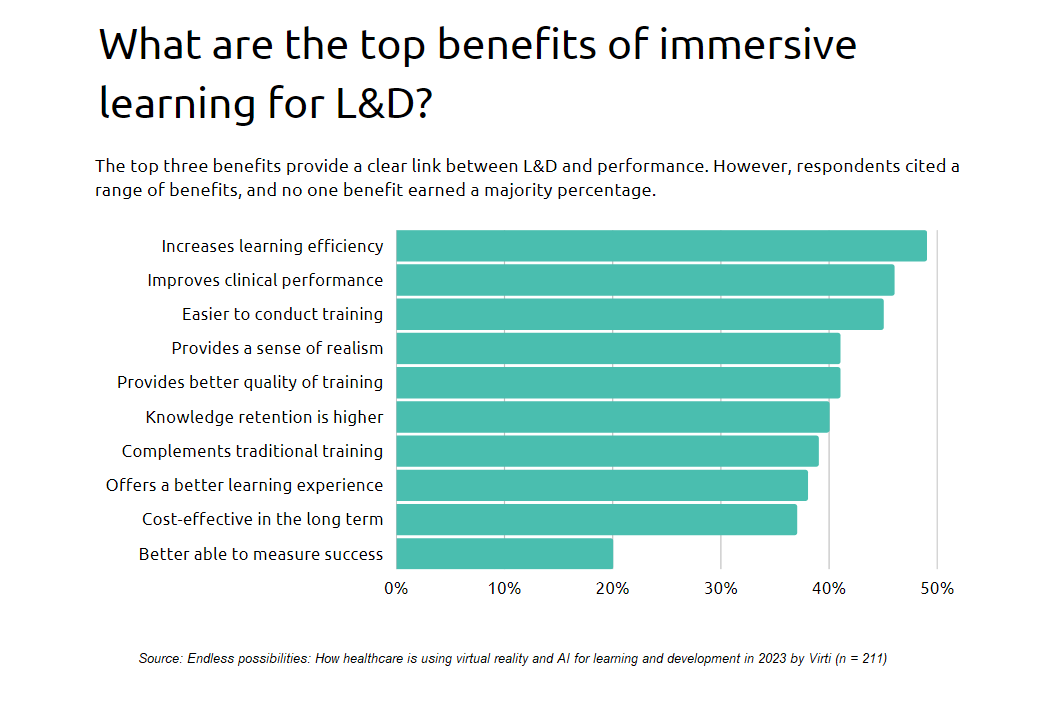Virtual reality accelerates learning and improves clinical performance, survey finds

Immersive learning technologies, such as virtual reality, augmented reality and extended reality, can have a significant impact on learning – and even improve clinical performance. That’s according to a recent survey of 211 learning and development (L&D) professionals working in healthcare.
The survey asked respondents, “Which of the following would you say are the top benefits of immersive technologies for learning and development?” Nearly half of respondents identified increased learning efficiency (49%) and improved clinical performance (46%) as the top benefits of virtual reality.
Here's how the top 10 benefits of virtual reality according to L&D professionals in healthcare tallied up:
- Increases learning efficiency – 49%
- Improves clinical performance – 46%
- Easier to conduct training – 45%
- Provides a sense of realism – 41%
- Provides better quality of training – 41%
- Knowledge retention is higher – 40%
- Complements traditional training – 39%
- Offers a better learning experience – 38%
- Cost-effective in the long term – 37%
- Better able to measure success – 20%
These findings are consistent with other studies that show VR can have a positive effect on
healthcare. Many of these demonstrate that virtual simulations help learners grasp new
information sooner – and retain that knowledge longer.
For example, a scoping review in PubMed Central (PMC9972057) evaluated 28 studies to assess the effects of virtual reality in medical education and clinical care and found:
“….overall in the COVID-19 pandemic, medical institutions and hospitals observed great uplift in the implementation of latest VR technologies in order to train medical students for enhancing their technical skills and to support healthcare professionals in clinical care and crisis management.”
And:
“Nine out of eleven medical education-based studies have shown positive outcomes in terms of knowledge, skills, confidence, and empathy. Besides this, VR has emerged as a promising tool for the clinical care of patients.”
The researchers concluded:
“…there is an urgent need for a collaboration between the VR simulation industries and healthcare professionals for more effective and specific VR content development.”
There’s more detail in the full report which is available for download here: Endless Possibilities: How Healthcare is Using Virtual Reality and AI for Learning and Development in 2023

